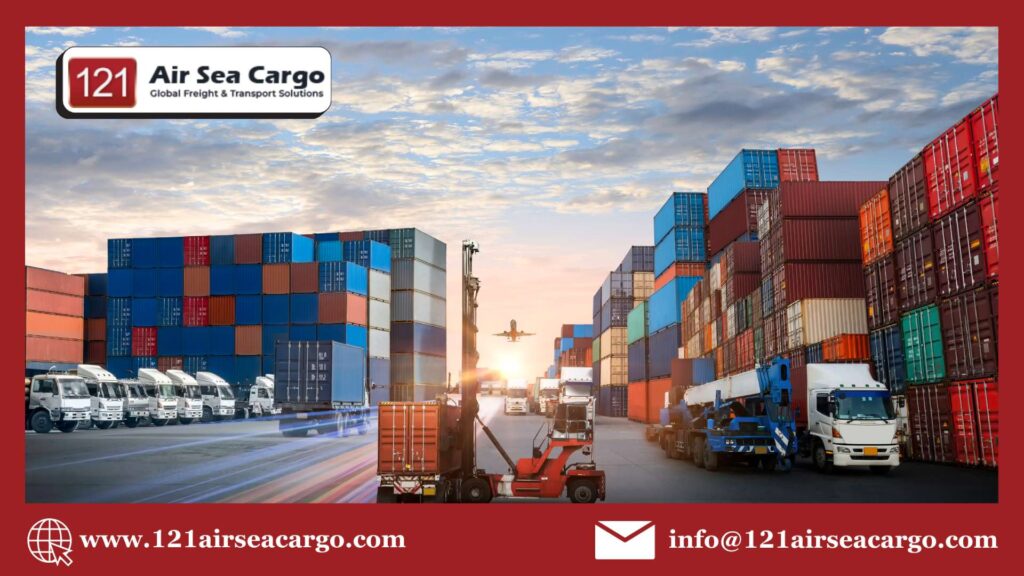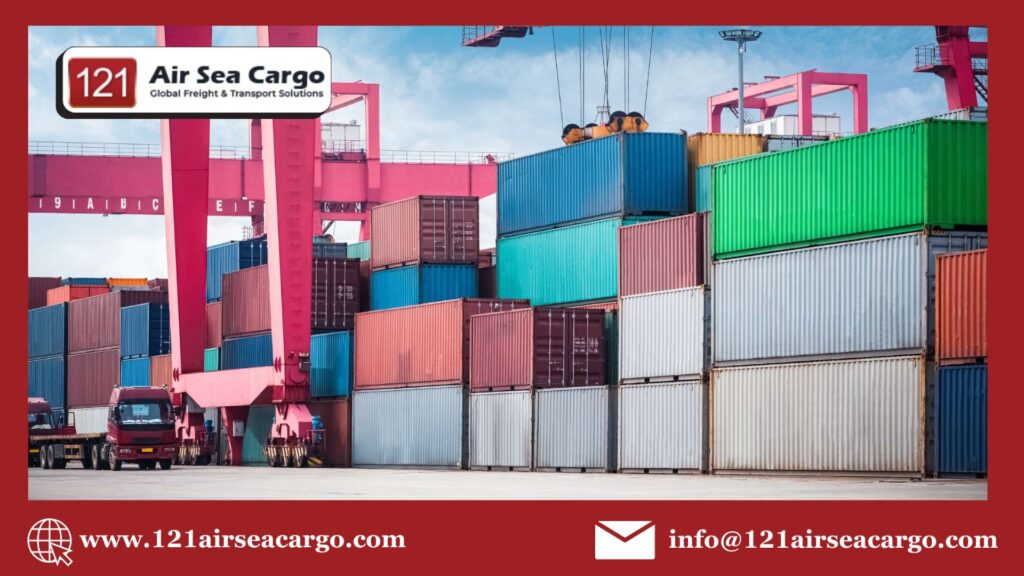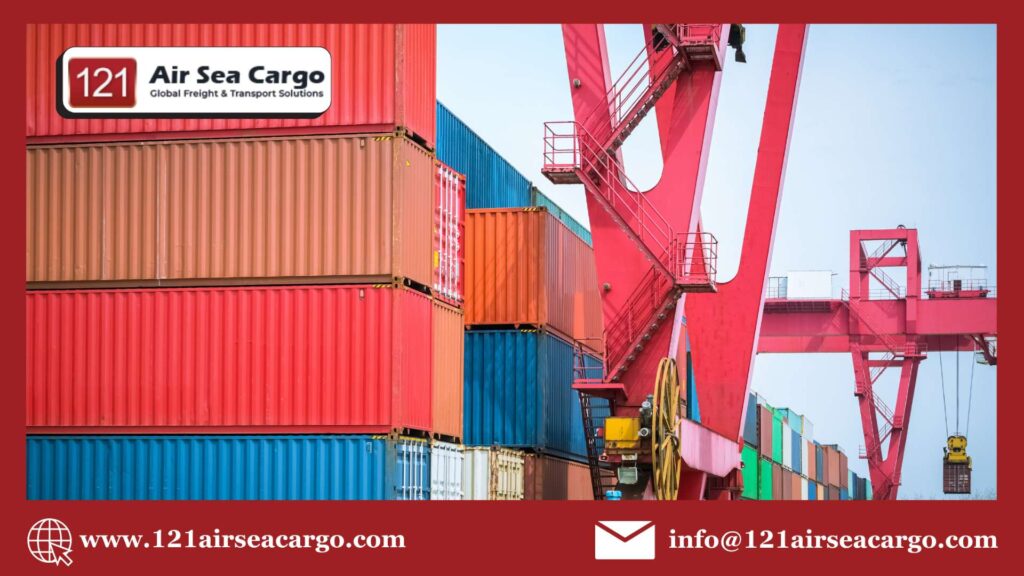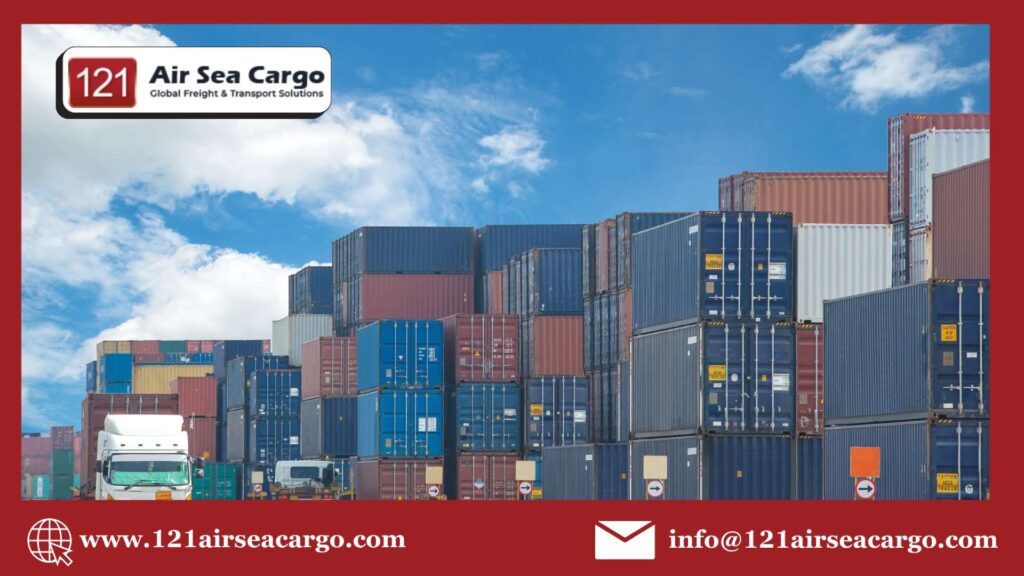
Inland Container Depots (ICDs) play a crucial role in global logistics. These facilities are designed to handle and temporarily store containerised cargo away from traditional seaports, offering efficient services such as customs clearance, cargo consolidation, and transportation coordination. This blog addresses the most commonly asked questions about ICDs to help you understand their significance and function.
1. What is an Inland Container Depot (ICD)?
An Inland Container Depot (ICD) is a facility situated inland, often far from coastal ports, that acts as an intermediary hub for containerised cargo. These depots extend the operations of seaports by offering importers and exporters the convenience of handling shipments closer to their locations. ICDs provide a full suite of services, including customs clearance, container storage, and the coordination of transport logistics.
2. Difference Between Inland Container Depots (ICDs) and Container Freight Stations (CFS)
Though both ICDs and Container Freight Stations (CFS) manage cargo, they serve distinct purposes:
- Location: ICDs are located inland, often near industrial hubs or transport corridors, while CFSs are positioned close to seaports to assist in immediate cargo handling.
- Cargo Type: ICDs primarily handle Full Container Load (FCL) shipments, which involve entire containers for single consignments. CFSs typically manage Less than Container Load (LCL) shipments, where multiple consignments share a single container.
- Services: ICDs offer extended logistics services such as customs clearance, transport coordination, and longer-term container storage. CFSs focus on sorting, unpacking, and consolidating cargo before or after its journey across the sea.

These differences make ICDs more suitable for inland logistics hubs, while CFSs serve as extensions of the port itself.
3. Services Provided by ICDs
ICDs offer comprehensive services to facilitate smooth cargo movement:
- Container Storage: Provides secure, temporary storage for containers awaiting transportation or clearance, helping to prevent bottlenecks in supply chains.
- Customs Clearance: Manages the inspection and documentation required for goods to comply with local and international regulations, speeding up the import/export process.
- Cargo Consolidation and Deconsolidation: Combines smaller shipments into one container for cost-effective transport or breaks down large consignments for distribution.
- Container Maintenance: Ensures containers meet safety and industry standards by conducting repairs, inspections, and general upkeep.
- Transportation Coordination: Oversees the seamless transfer of containers between the ICD and final destinations, coordinating schedules with transport providers.
These services streamline the supply chain by shifting essential processes away from congested seaports.
4. Ownership and Operation of ICDs
ICDs may be owned and operated by various entities:
- Government-Owned: State-run facilities that support national trade and promote regional economic development.
- Privately-Owned: Managed by logistics companies that establish ICDs to expand their service networks and provide specialised solutions.
- Public-Private Partnerships (PPPs): Collaborative ventures where the public sector provides infrastructure support, while private entities handle day-to-day operations and efficiency improvements.
In countries like the UK, private logistics firms often play a significant role in operating inland depots.
5. Benefits of Using Inland Container Depots
ICDs offer several advantages, such as:
- Decongesting Seaports: Shifts key activities inland, reducing the strain on coastal ports and improving turnaround times for vessels.
- Cost Efficiency: Cuts down on transportation expenses for businesses operating far from seaports by providing nearby logistics solutions.
- Customs Convenience: Enables businesses to complete customs inspections and paperwork at an inland location, avoiding delays at seaports.
- Reduced Transit Times: Helps businesses save time by streamlining the logistics process and providing faster access to import/export services.
These benefits make ICDs a vital part of international trade and logistics.

6. Role of ICDs in Reducing Port Congestion
Seaports can become bottlenecks due to the sheer volume of cargo passing through. ICDs help alleviate this issue by handling customs inspections, cargo sorting, and storage inland. By distributing these activities, ICDs enable seaports to focus on loading and unloading operations, improving overall throughput.
7. Connectivity Between ICDs and Seaports
ICDs are connected to ports through various transportation methods, including:
- Road Transport: The most commonly used method for short-distance transfers, offering flexibility and door-to-door services.
- Rail Networks: Cost-effective for bulk container shipments over long distances, with dedicated freight corridors ensuring faster transfers.
- Inland Waterways: In regions with navigable rivers or canals, this eco-friendly mode provides an alternative for moving large consignments.
Efficient connections ensure timely and cost-effective movement of goods.
8. Types of Cargo Handled at ICDs
ICDs manage a diverse range of cargo, such as:
- Full Container Load (FCL): Large shipments that occupy entire containers, often used for bulk goods or high-value items.
- Less than Container Load (LCL): Partial shipments grouped together with other consignments, ideal for small businesses or smaller orders.
- Refrigerated Containers (Reefers): Specialised containers for perishable goods that require precise temperature control, such as food or pharmaceuticals.
These facilities often include specialised equipment to handle different cargo types efficiently.
9. Impact of ICDs on Shipping Costs and Transit Times
By positioning services closer to manufacturing and consumption hubs, ICDs reduce transportation distances and associated costs. They also help to expedite the customs process by centralising documentation and inspection services, resulting in shorter transit times and increased supply chain efficiency.
10. Importance of ICDs for Landlocked Regions
Inland Container Depots are particularly vital for landlocked regions, providing access to international shipping routes. By serving as inland extensions of seaports, ICDs help connect remote areas to global trade, facilitating economic growth and business expansion.

Conclusion
Inland Container Depots (ICDs) are essential for efficient cargo management and international trade. They reduce congestion at seaports, cut transportation costs, and streamline customs processes. By understanding the role and benefits of ICDs, businesses can make informed decisions to enhance their logistics operations.
About Author:
With over 10 years of expertise, 121 Air Sea Cargo Ltd delivers unmatched reliability in global shipping. Our proven track record in air and sea freight ensures speed, security, and precision for every shipment. Businesses trust us for tailored logistics solutions, cutting-edge tracking, and seamless delivery worldwide. Choose us for excellence in handling your shipping needs with professionalism and care.
For more information, please visit Our office directly.
121 Air Sea Cargo Ltd (UK)
Place: 18-24 Brighton Road Croydon, Surrey, CR2 6AA
Phone: +44 (0) 20 8313 1777/+44 7931 471653
Email: info@121airseacargo.com
121 Air Sea Cargo Services Co LLC (Dubai)
Place: Unit 25, Dubai Industrial City, Dubai, United Arab Emirates
Phone: +971 (0) 50 425 1255/+971 (0) 56 938 4480
Email: info@121airseacargo.com

